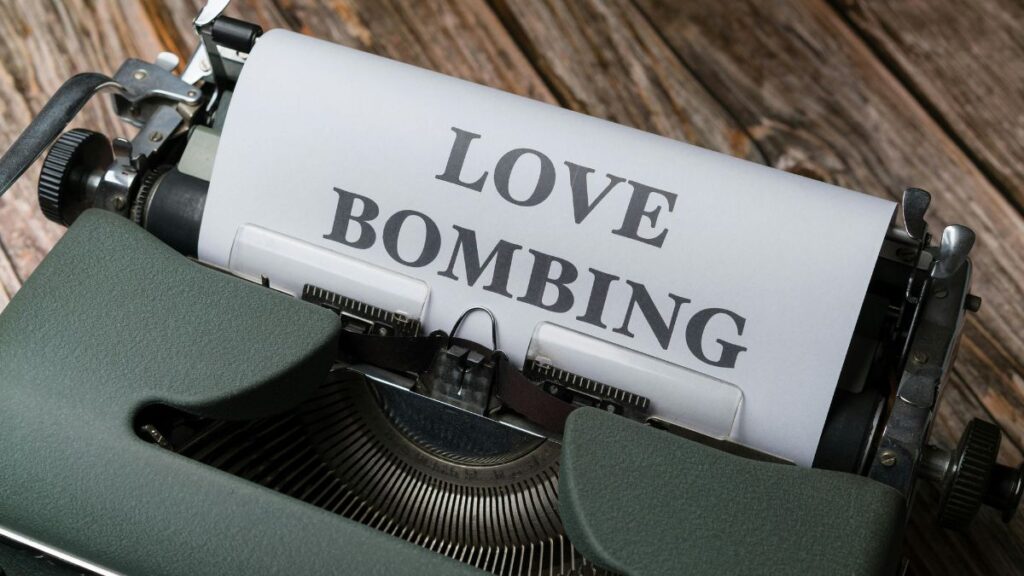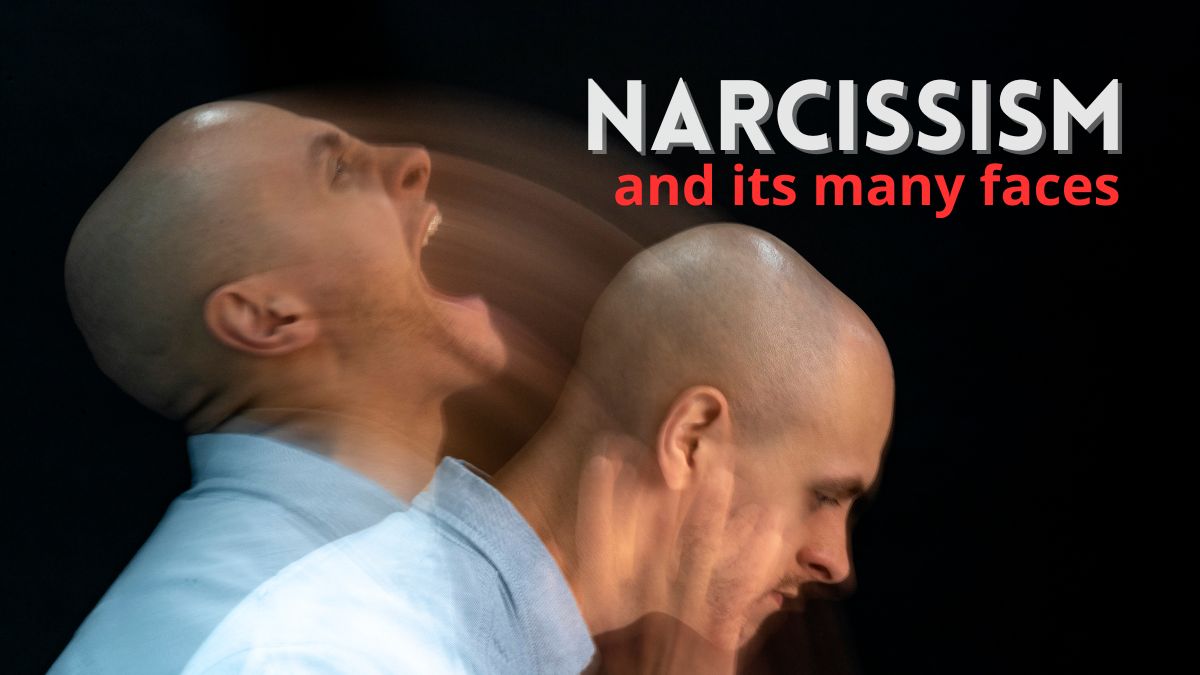Ah, love! The sweet, intoxicating elixir that can elevate us to dizzying heights—or, in some cases, drag us into the murky depths of a narcissistic relationship. If you’ve ever found yourself questioning the sanity of your romantic life, you might be dealing with a partner who exhibits signs of narcissism. In this article, we’ll explore the various signs of a narcissistic relationship, how to recognize emotional abuse, and what to do if you find yourself entangled with someone who may have narcissistic personality disorder (NPD). Buckle up, dear reader; it’s going to be an enlightening ride!
What Are the Signs of a Narcissistic Relationship?
- Overwhelming sense of admiration they demand
- Engage in grandiose storytelling, painting themselves as the hero of every saga while downplaying your achievements
- Self-esteem begins to take a nosedive because partner’s ego is perpetually inflated
- Lack of empathy
- Frequently interrupt you, steering conversations back to their own interests
- Belittle your feelings and experiences
- Claim you’re “overreacting” or “too sensitive”
- Use flattery and validation to draw you in, only to discard you when they no longer find you interesting or useful
- Emotional rollercoaster
- Gaslighting
- Twist your words
- Deny past events
- Accuse you of being forgetful
- Love-bombing at the start of the relationship, showering you with affection and compliments, only to withdraw that affection later
- Criticizing your every move and undermining your self-worth
- Abruptly end the relationship or withdraw affection entirely
- Persistent criticism
- Invalidation of your feelings
- General atmosphere of fear and anxiety
- Constantly trying to appease your partner’s needs while sacrificing your own
- Imbalance where one partner’s needs always take precedence
How to Identify Behavior in Your Partner?

Identifying narcissistic relationship behavior in your partner is akin to spotting a unicorn in the wild—rare but not impossible. The first hint that you’re dating a narcissist is the overwhelming sense of admiration they demand. This isn’t just a request for compliments; it becomes a manipulation tactic where your partner may turn the attention back to themselves at every opportunity. You might notice that they often engage in grandiose storytelling, painting themselves as the hero of every saga while downplaying your achievements. If your self-esteem begins to take a nosedive because your partner’s ego is perpetually inflated, you might be dealing with someone who has a lack of empathy, a hallmark of narcissistic relationships.
What Are Common Signs of Narcissism in Relationships?
Common signs of narcissistic relationships manifest in various ways. For starters, a narcissistic partner may frequently interrupt you, steering conversations back to their own interests. This may leave you feeling unheard and undervalued. Another sign is the tendency to belittle your feelings and experiences; they might claim you’re “overreacting” or “too sensitive,” which is a classic example of emotional abuse. Furthermore, narcissists often use flattery and validation to draw you in, only to discard you when they no longer find you interesting or useful. If you find yourself on an emotional rollercoaster, you might be caught in the cycle of narcissistic abuse.
How Does a Narcissist Manipulate Their Partner?

Narcissists are masters of manipulation, often employing tactics that leave you questioning your reality. Gaslighting is one of the most insidious forms of manipulation—your partner may twist your words, deny past events, or even accuse you of being forgetful. This kind of emotional abuse can make you doubt your own memories and feelings. Additionally, the narcissistic partner may use love-bombing at the start of the relationship, showering you with affection and compliments, only to withdraw that affection later, creating a toxic relationship pattern that keeps you chasing after their approval.
How Does Narcissistic Abuse Manifest in a Relationship?
What is the Cycle of Narcissistic Abuse?
The cycle of narcissistic abuse is a well-trodden path, consisting of three primary stages: idealization, devaluation, and discard. Initially, your narcissistic partner may shower you with admiration, making you feel like you’re on top of the world. However, this phase is fleeting. Once they’ve ensnared you in their charm, they will begin to devalue you, often criticizing your every move and undermining your self-worth. This emotional rollercoaster can lead to the eventual discard phase, where they may abruptly end the relationship or withdraw affection entirely. Recognizing this cycle is crucial for anyone experiencing narcissistic abuse.
How to Recognize Emotional Abuse from a Narcissistic Partner?
Emotional abuse from a narcissistic relationship is often subtle yet devastating. Key indicators include persistent criticism, invalidation of your feelings, and a general atmosphere of fear and anxiety. You may feel as if you’re walking on eggshells, constantly trying to appease your partner’s needs while sacrificing your own. This imbalance is a common trait in narcissistic relationships, where one partner’s needs always take precedence. Pay attention to your emotions; if you frequently feel confused or ashamed, these are signs of emotional abuse that should not be ignored.
What Are the Effects of Gaslighting in a Relationship with a Narcissist?
The effects of gaslighting can be profoundly damaging. Victims often experience a decline in self-esteem and a distorted sense of reality. Over time, you may find yourself second-guessing your thoughts and feelings, feeling isolated from friends and family who might see the truth more clearly than you do. Survivors of narcissistic relationship abuse often report feelings of disorientation, anxiety, and depression. Recognizing gaslighting is a vital step in healing from narcissistic abuse; once you see it for what it is, you can begin to reclaim your reality.
What Relationship Patterns Are Common with Narcissists?

How Do Narcissists Use Validation and Compliments as Manipulation Tactics?
Narcissists often rely on validation and compliments as manipulation tactics, using them to create an illusion of intimacy. Initially, they may shower you with praise, making you feel valued and cherished. However, this is often a façade—once they’ve hooked you, the compliments may wane, replaced by criticism and belittling remarks. This creates a repeating pattern where you constantly seek their approval, leading to a toxic dynamic. It’s essential to recognize this behavior for what it is: a means of maintaining control over you.
What Role Does Lack of Empathy Play in a Narcissistic Relationship?
The lack of empathy is the cornerstone of a narcissistic relationship. Without the ability to understand or relate to your feelings, a narcissistic partner may fail to provide the emotional support you need. This lack of emotional connection can leave you feeling isolated and abandoned. As a result, you may find yourself compensating for their shortcomings, trying to fulfill their emotional needs while neglecting your own. This imbalance can create a toxic environment where your self-worth is continually undermined.
How Can You Spot Relationship Patterns That Indicate Narcissism?
Detecting narsissistic relationship patterns involves paying close attention to the emotional dynamics at play. If you often find yourself in a cycle of ups and downs, where moments of affection are followed by coldness or criticism, it’s time to take a step back. Furthermore, if your partner often deflects blame or refuses to acknowledge your faults, this is a significant warning sign. Keeping a diary of your feelings and interactions can help you identify these patterns and clarify the relationship.
How to Heal from a Relationship with a Narcissist?
What Are the First Steps to Rebuild After Narcissistic Abuse?
Rebuilding after narcissistic abuse can feel like an insurmountable task, but taking those initial steps is crucial. Start by acknowledging the trauma you’ve experienced; understanding that you’ve been in a toxic relationship is vital for healing. Surround yourself with supportive friends and family who validate your feelings and can help you regain your sense of self. Journaling can also be a powerful tool, allowing you to process your emotions and reflect on your experiences.
How Important is Self-Care in Healing from Narcissistic Relationships?
Self-care is not just important; it’s essential when healing from a relationship with a narcissist. Prioritizing your mental and emotional well-being can help you rebuild your self-esteem and regain a sense of normalcy. Engage in activities that bring you joy, whether it’s art, exercise, or simply enjoying a good book. Establishing boundaries with your narcissistic partner, if you must continue interacting, is also crucial in protecting your mental health. Remember, healing from narcissistic abuse takes time, and that’s perfectly okay.
What Resources Are Available for Victims of Narcissistic Abuse?
Fortunately, there are many resources available for survivors of narcissistic abuse. Support groups, both online and in-person, can provide a sense of community and understanding. Books and articles on narcissism, emotional abuse, and healing can also offer valuable insights. Therapists who specialize in trauma and narcissistic relationship abuse can guide you through the healing process, helping you reclaim your life and self-worth. Knowledge is power, and arming yourself with the right tools is a significant step toward recovery.
Can You Change a Narcissist or Save the Relationship?

Is It Possible to Help a Narcissistic Partner Change Their Behavior?
Ah, the age-old question: can you change a narcissist? The short answer is: NO. Although it can be tempting to believe that love can conquer all, someone with narcissistic personality disorder (NPD) is unlikely to change without a genuine desire to do so, often requiring professional help. If your partner demonstrates a consistent lack of empathy and a pattern of selfish behavior, it is crucial to consider whether you are willing to continue investing in a relationship that may never meet your emotional needs. It’s almost always better to get out of the narcissistic relationship than to wear yourself down more each day.
What Are the Risks of Staying in a Relationship with a Narcissist?
The risks of staying in a relationship with a narcissist are numerous and often detrimental to your well-being. Prolonged exposure to emotional abuse can lead to anxiety, depression and chronic low self-esteem. In addition, staying in a toxic narcissistic relationship can isolate you from supportive friends and family, reinforcing the cycle of narcissistic abuse. Ultimately, you need to assess whether the relationship is worth the emotional toll it takes on your mental health.
How to Approach Conversations About Narcissistic Traits with Your Partner?
Approaching conversations about narcissistic relationship traits with your partner can be tricky. It’s essential to remain calm and focus on specific behaviors rather than labeling them as a narcissist. Use “I” statements to express how their actions affect you, and avoid accusatory language that may lead to defensiveness. Prepare for the possibility that your partner may deny or dismiss your concerns; after all, recognizing their narcissistic traits may require a level of introspection they are unwilling to engage in. Ultimately, prioritizing your emotional health is crucial, and if the conversation doesn’t lead to positive change, it might be time to reassess the relationship.
The Final Takeaway
This article has illuminated the complex and often insidious nature of narcissistic relationships, highlighting the manipulative tactics and damaging patterns that can leave lasting emotional scars. Recognizing these signs is the first crucial step towards breaking free from the cycle of abuse and prioritizing your own well-being. If any of these patterns resonate with your experiences, seeking support and taking action to protect yourself is paramount.
Frequently Asked Questions
What are the common signs of a narcissistic relationship pattern?
If your partner exhibits a constant need for admiration, displays grandiosity, or has an inflated sense of self-importance, you might be dealing with a narcissist. Be on the lookout for tactics like gaslighting, love bombing, and the infamous silent treatment!
How can I recognize the narcissistic abuse cycle in my relationship?
The narcissistic abuse cycle typically involves three phases: idealization, devaluation, and discard. Initially, your partner may put you on a pedestal (idealization), but soon after, they may begin to criticize and belittle you (devaluation), ultimately leading to abandonment (discard). It’s like a rollercoaster, but without the fun!
Is it possible to heal from narcissistic abuse?
Absolutely! The first step towards healing is recognizing the situation for what it is. Breaking free from the cycle of narcissistic abuse is essential. Seeking help from a licensed therapist can help you rebuild your self-confidence and learn how to navigate healthy relationships.
What is narcissistic personality disorder (NPD) and how does it affect relationships?
Narcissistic personality disorder is a mental health condition characterized by a long-term pattern of grandiosity, a need for admiration, and a lack of empathy. In a romantic relationship, this may result in manipulative behaviors, constant criticism, and the narcissist’s tendency to gaslight their partner.
How do I deal with a narcissistic partner’s abusive behavior?
Dealing with a narcissistic partner can be tricky, but setting boundaries is key. Make it clear what you will and will not tolerate. Remember, standing up for yourself is not just a right; it’s a necessity in healthy relationships!
What are some common narcissistic tendencies I should watch for?
Look out for haughty behaviors, a sense of entitlement, and a persistent need for validation. If your partner seems to make everything about them, congratulations! You may be dating a narcissist.
Can a therapist help me if I think I’m in a relationship with someone who has NPD?
Yes, a therapist can help you understand the dynamics of your relationship and provide you with coping strategies for dealing with narcissistic tendencies. They can also assist you in rebuilding your sense of self and navigating the emotional aftermath of an abusive relationship.
What should I do if I feel like I’m being gaslighted by my partner?
If you feel like you’re being gaslighted, trust your instincts. Document your experiences, talk to friends or family for support, and consider consulting a therapist. Remember, if it feels wrong, it probably is!
How do I know if I’m experiencing love bombing from a narcissist?
Love bombing is characterized by overwhelming affection and attention that feels too good to be true. If your partner showers you with love and compliments at the beginning, only to later display manipulative or abusive behavior, it’s a classic narcissistic tactic!




